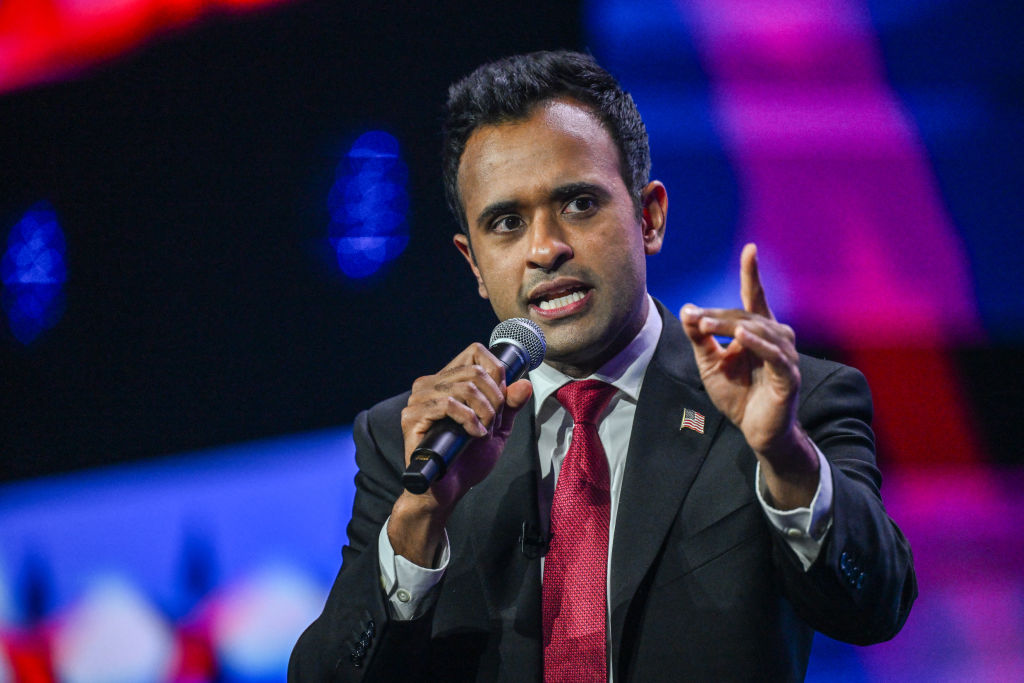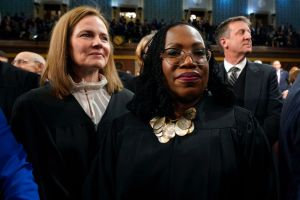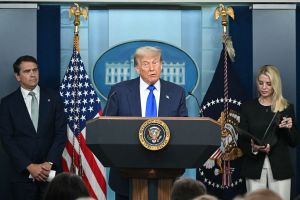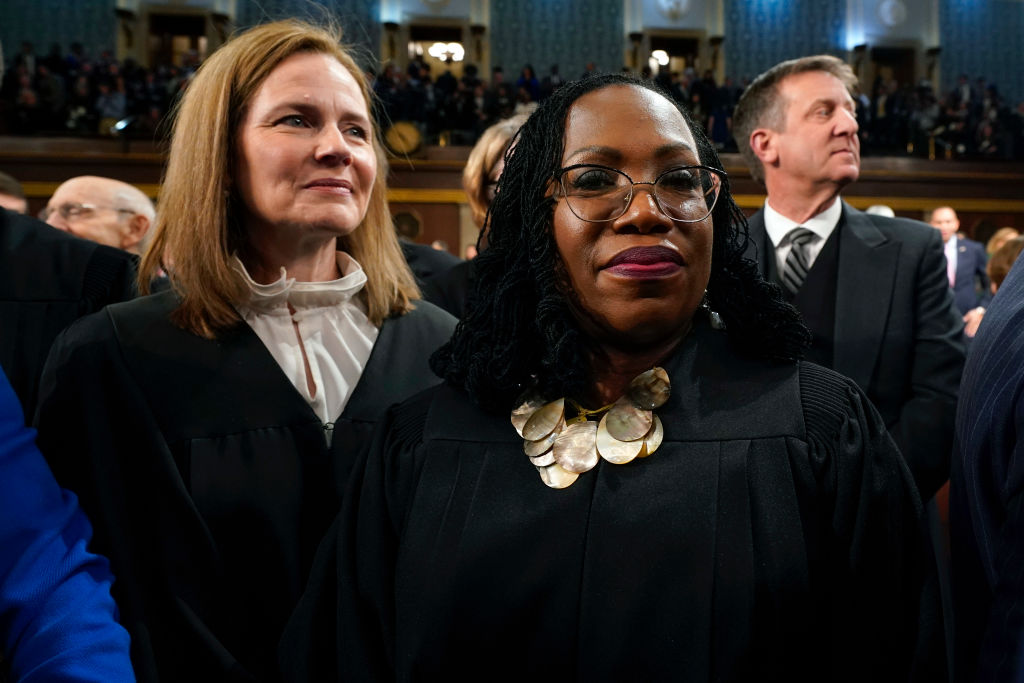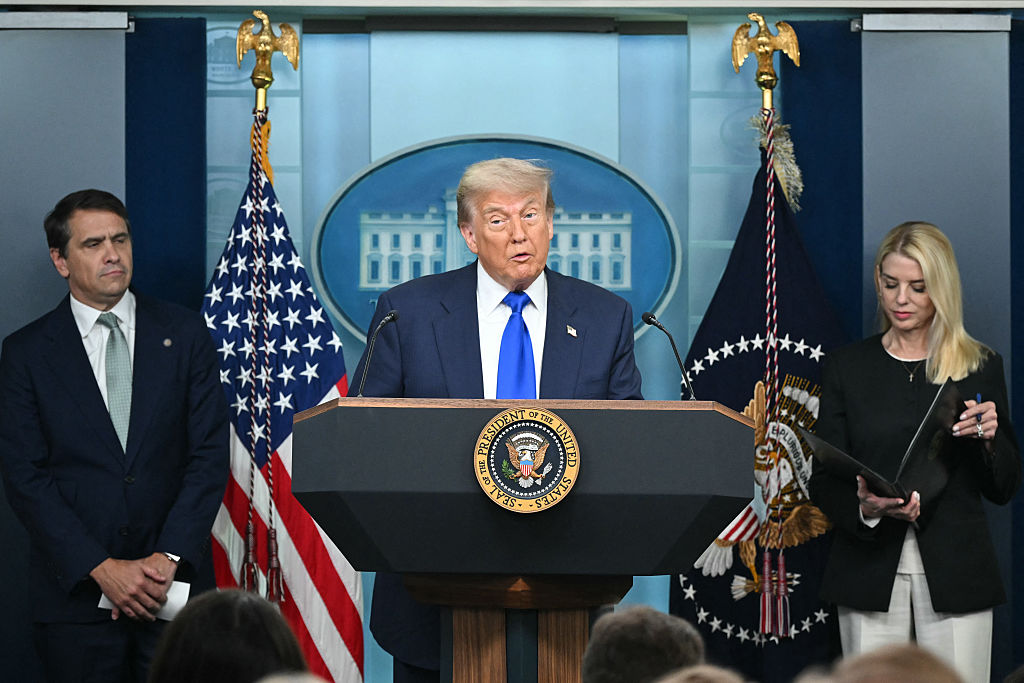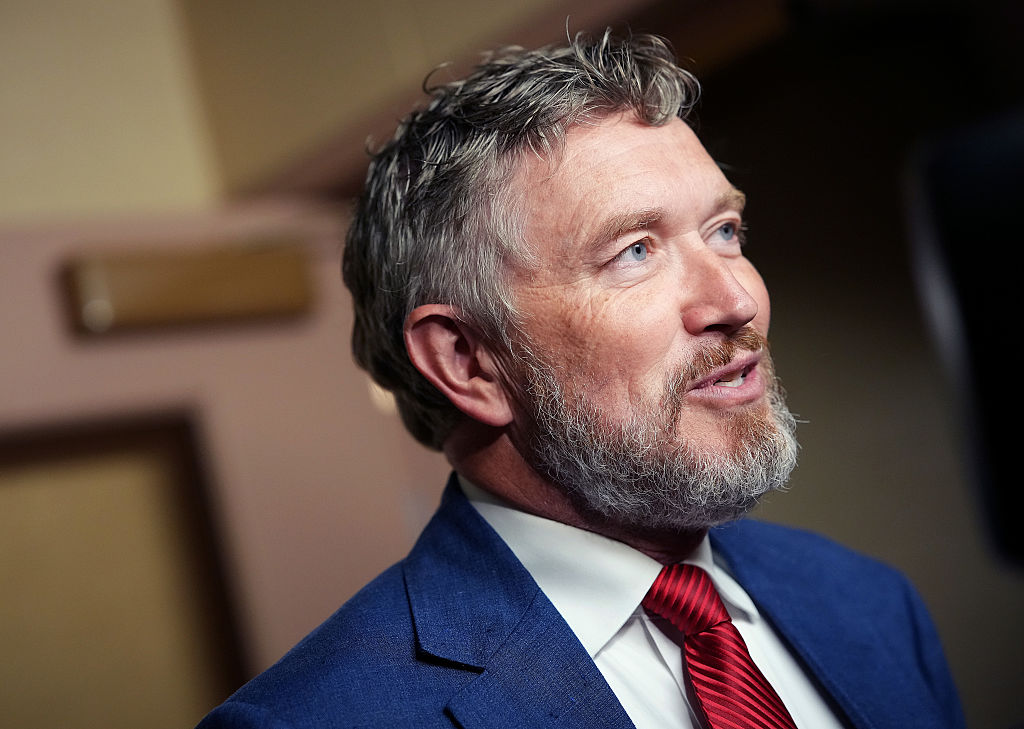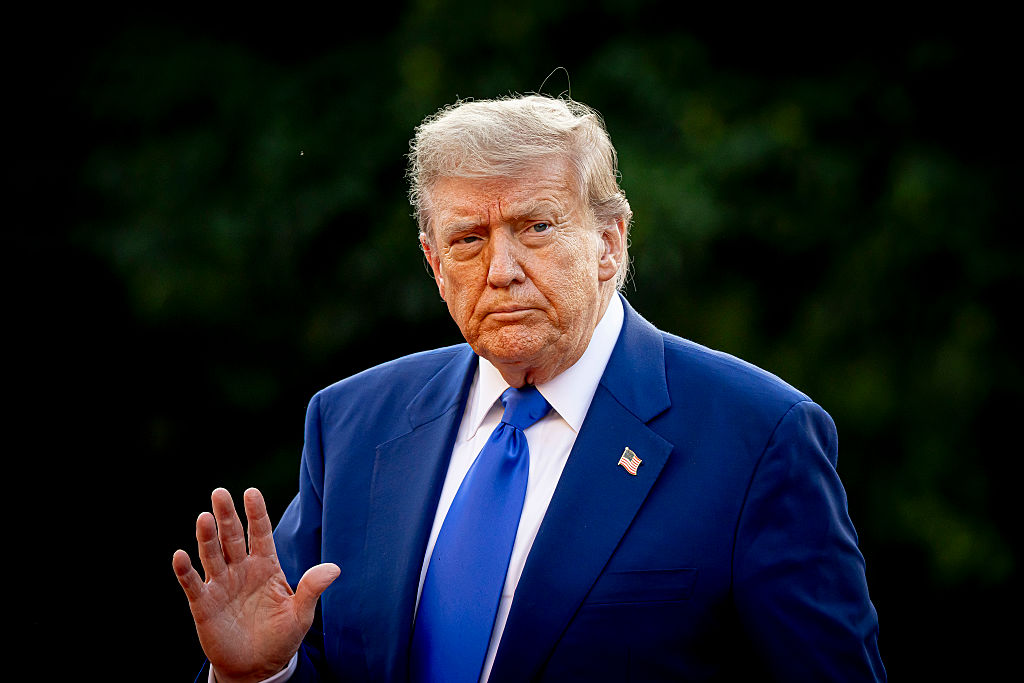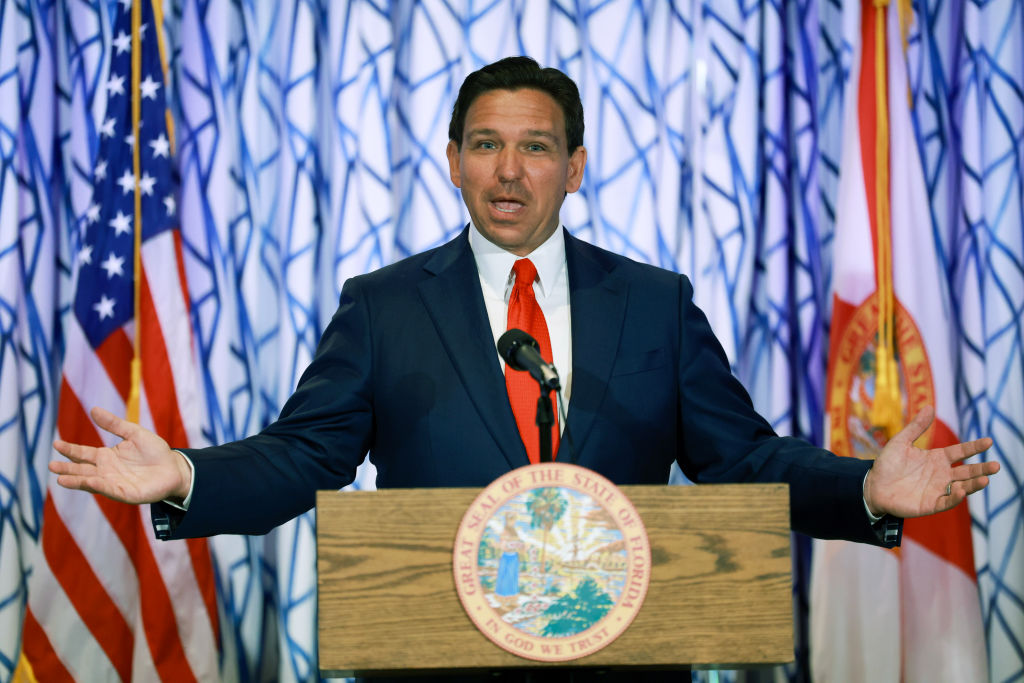This week a new Morning Consult poll — a qualifier for the first Republican primary debate — shed new light on the effectiveness of the various campaign strategies employed by the 2024 primary candidates.
Former president Donald Trump, unsurprisingly, leads the field significantly; 55 percent of expected GOP voters say they would vote for Trump if the primary or caucus were held in their state today. Florida governor Ron DeSantis is in second place, trailing Trump by a whopping thirty-five points.
How did Trump manage so quickly to neuter his strongest challenger, who was adored by conservatives for his common-sense Covid policies and “war on woke” in Florida? Many were skeptical of Trump’s decision to attack DeSantis, who he has dubbed “DeSanctimonious,” well before the governor ever entered the 2024 race. No one got why Trump raised issues with DeSantis’s record on Covid, which is undeniably better than Trump’s. Wouldn’t this strategy just alienate Trump supporters who also love DeSantis, and maybe even moved to Florida for him?
Trump’s aggressive strategy has proven effective because he managed to: 1) define DeSantis for national voters before he got the opportunity to do it himself and 2) preemptively litigate the major issue that DeSantis could beat him on and put it to rest. DeSantis spent the soft-launch period of his campaign trying to erase the negative image of him Trump planted in voters’ heads and defending his state’s Covid response.
And as the old saying goes, if you’re explaining, you’re losing. Before DeSantis had even officially announced, there was talk of a campaign “reboot.” Campaign filings show that DeSantis is reliant on big donors and is spending their cash quickly. But the Murdoch media empire and DeSantis’s top-dollar GOP donors are apparently not so supportive anymore — and are looking to alternatives like Senator Tim Scott or Virginia governor Glenn Youngkin.
DeSantis has seemingly been stuck in the quicksand of Trump’s attacks. The governor is demure in responding and apparently has a rule that he will continue to discuss Trump’s “failings” when asked, but will otherwise not bring the ex-president up, according to a campaign memo. This fall, the campaign will try to reestablish his biography, with special emphasis on him being a father and a veteran, and unveil new policy platforms. The first of these, in which DeSantis promises to “rip the woke out of the military,” was quickly overshadowed by another Trump announcement: Trump had received a letter from Special Counsel Jack Smith, something the former president believed was a sure sign he’d be indicted in the January 6 investigation.
DeSantis, whether through his own campaign’s missteps or the superior media savvy of Trump, has simply been unable to reestablish control over the news cycle. In an attempt to make some of his own news this week, DeSantis broke his typical media policy of avoiding mainstream, left-leaning outlets, in order to sit down with CNN’s Jake Tapper. Unfortunately for him, the headlines that came from the interview were largely about his faltering campaign and his response to the impending Trump indictment.
The Morning Consult poll provides further insight into the importance of media saturation for any campaign. Only 31 percent of voters said they had not recently seen, read or heard anything about Trump; 41 percent had not seen, read or heard anything about DeSantis. It did not seem to matter to voters whether the information they had picked up about the respective candidates was positive or negative. DeSantis was clocked as having generally more positive coverage, despite his protestations that the media is intent on destroying his campaign, but that didn’t seem to translate into higher support.
Meanwhile, Vivek Ramaswamy, who had basically zero name ID at the start of his campaign, was the third most heard about 2024 GOP candidate. Ramaswamy has run a novel and newsy campaign; he announced his candidacy on the now-canceled Tucker Carlson Tonight, appeared on The Breakfast Club podcast, recently released an unprompted shortlist of potential Supreme Court nominees, commanded that January 6 was about government and Big Tech censorship at the Iowa Family Leadership Summit, and has been dominating Twitter without the use of annoying campaign surrogates or Stans.
Eight percent of voters said they’d support Ramaswamy in the primary, placing him just twelve points back from “America’s Governor.” Five months ago, who would have thought the best advice Ron DeSantis’s campaign would be “copy from Vivek’s playbook?”



